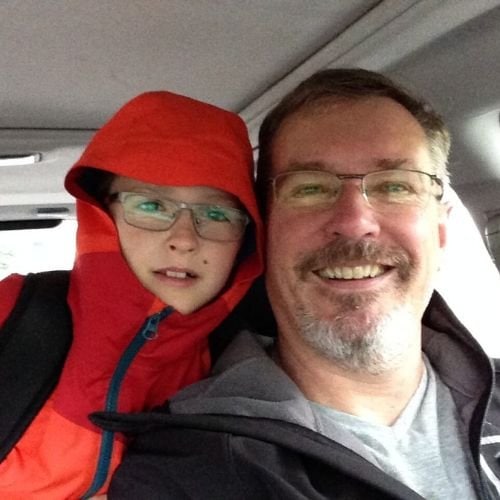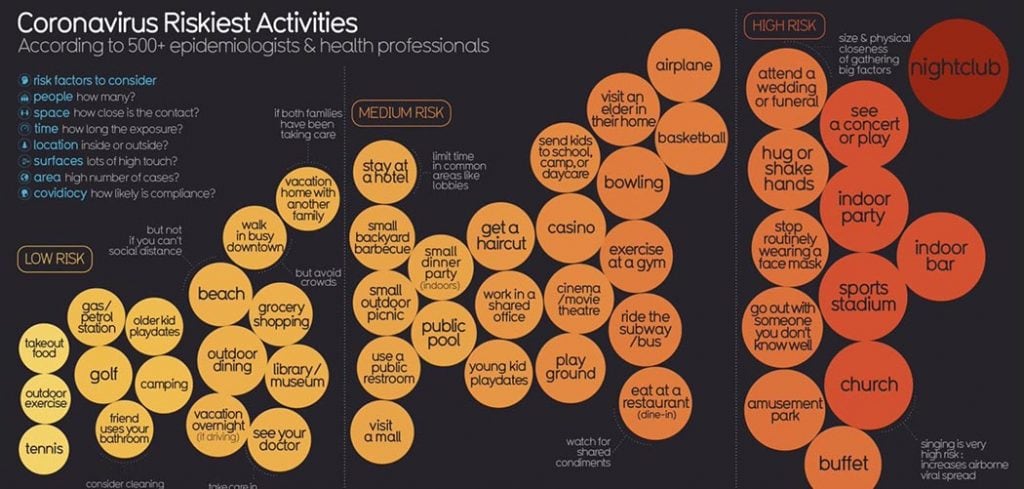We're an affiliate. We hope you love the products we recommend! Just so you know, we may collect a share of sales or other compensation from the links on this page. Thank you if you use our links, we really appreciate it!
In short, yes, camping is a low-risk activity
Interested in camping in a rooftop tent? See our excellent article: The Ultimate Guide for Rooftop Tent Beginners
What you need to know
- Visit parks and recreation areas that are close to your home.
- Don’t visit crowded parks or campgrounds.
- Carefully consider the use of playgrounds, and help children follow guidelines.
- Stay at least 6 feet away from people you don’t live with.
- Wear a mask. Wash your hands often and don’t share items with people you don’t live with.
Staying physically active is one of the best ways to keep your mind and body healthy. In many areas, people can visit parks, trails, and open spaces as a way to relieve stress, get some fresh air, and stay active.
While these facilities and areas can offer health benefits, you must follow the steps below to protect yourself and others from COVID-19.
When visiting parks, beaches, or recreational facilities open for public use, try to protect against exposure to SARS-CoV-2, the virus that causes COVID-19, by practicing social distancing and everyday steps such as washing hands often and covering coughs and sneezes.
At all parks and recreation areas
Follow these actions when visiting a park, beach, or recreational facility:
Visit parks that are close to your home
Traveling long distances to visit a park may contribute to the spread of COVID-19,
Travel may require you to stop along the way or be in close contact with others with whom you may not otherwise have contact. Travel may also expose you to surfaces contaminated with SARS-CoV-2, the virus that causes COVID-19.
Check with the park or recreation area in advance to prepare safely
National, State, or local parks: the federal State and local authorities will decide whether parks and other recreational facilities will open. Check with the park in advance to be sure you know which areas or services are open, such as visitors’ centers, bathroom facilities, and concessions, and bring what you need with you, such as hand sanitizer or other supplies to maintain proper hygiene. Beaches or other swimming areas: State and local authorities will decide whether swimming areas at oceans, lakes, and other natural bodies of water will be open. Please check with individual beaches for specific details, including whether the water is open for swimming. Stay at least 6 feet away from people you don’t live with
Use social distancing and avoid crowded parks
Stay at least 6 feet from people you don’t live with (“social distancing”) at all times. This might make some open areas, trails, and paths better to use than others. Do not go into a crowded area. Avoid gathering with people you don’t live with. Avoid crowded parks. Do not visit parks where you cannot stay at least 6 feet away from people you don’t live with.
Wear a mask
Wear a mask as feasible. Masks are most essential in times when social distancing is difficult, including when hiking on trails that may be popular or crowded. Masks should not be placed on Children under age 2. Anyone who has trouble breaching anyone unconscious, can’t move, or is otherwise unable to remove the mask without assistance asks should not be worn when engaging in activities where the mask might become wet, like when swimming.
Clean hands often
Wash hands often with soap and water for at least 20 seconds, especially after going to the bathroom, before eating, and after blowing your nose, coughing, or sneezing. Adults and older children who can safely use hand sanitizer: Use hand sanitizer that contains at least 60% alcohol and rub hands together until dry, if soap and water are not readily available.
Stay home if you are sick
Do not visit parks if you are sick with, tested positive for COVID-19, or were recently (within 14 days) exposed to COVID-19.
If you are sick with or tested positive for COVID-19, were recently exposed (within 14 days) to someone with COVID-19, or just don’t feel well, do not visit public areas including parks or recreational facilities. Follow recommended steps to take if you are sick.
Source: https://www.cdc.gov

We’re passionate about getting the most from your car when it comes to going on adventures and road trips. When you take one of these trips you often need more room in your car than you usually would. This is when we come in, to help you find the best roof tent for your car and needs.

